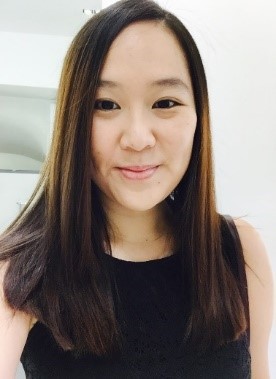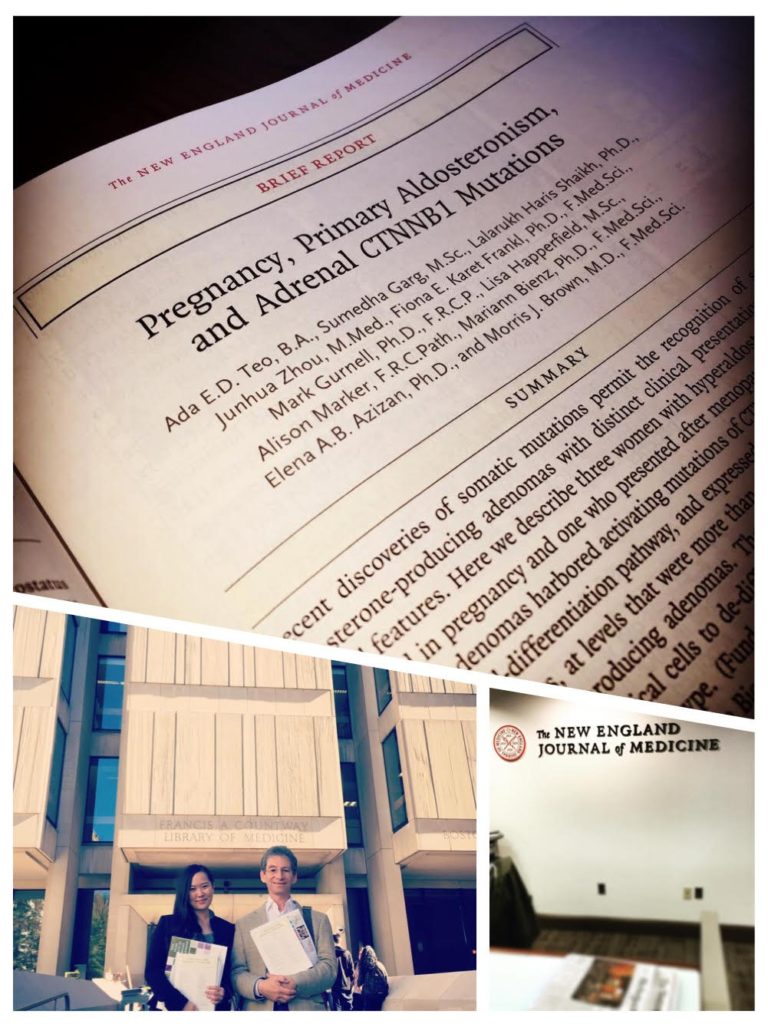Dr Teo Ee Der, Ada

Background: Cambridge A*STAR MBBS-PhD Scholar, current NUHS Internal Medicine R2 Resident
Why I have chosen to do science and medicine
Having embarked on research in various labs in Singapore since the age of 14, I am certain of my passion for research and the curiosity that drives it. At the same time, having been exposed to clinical experience during the school holidays has shown me what a real privilege it is to be able to make a difference to the lives of patients. It is with this in mind that I embarked on an exhilarating journey to explore the intersection of Science and Medicine in Cambridge.
The journey
Being awarded the National Science MBBS-PhD Scholarship, an overseas scholarship from the Agency of Science Technology and Research, Singapore (A*STAR), I was given the opportunity to pursue the intercalated MB-PhD course in Cambridge (9 years total duration).
For my PhD, I was privileged to work with Prof Morris Brown (Professor of Endocrine Hypertension) at the Clinical Pharmacology Unit in Cambridge. My research focussed on the molecular genetics of hypertension, in particular aldosterone-producing adenomas and the discovery of contributory genes and mutations. We discovered a subtype of these with hallmark somatic mutations and a genotype-phenotype correlation, often presenting with resistant hypertension.

This work enabled both clinical insight and research expertise to be elegantly intertwined, with our patients benefiting from, and contributing to, research into their hypertension, culminating in the below publication:
Teo AED, Garg S, Haris Shaikh L, Zhou J, Karet Frankl FE, Gurnell M, Happerfield L, Marker A, Bienz M, Azizan EAB, Brown MJ. Pregnancy, Primary Aldosteronism, and Adrenal CTNNB1 Mutations. New England Journal of Medicine. 2015; 373:1429-1436.
What I propose to do in my career
Having had an appreciation of the bench-to-bedside process, I am excited by the possibility of predictive genotyping to pursue the goal of eventually developing therapies for hypertension stratified to different patient groups. After completing Junior Residency in Internal Medicine, I hope to explore translational research in the future as a specialist trainee.
I would imagine that many aspiring clinician-scientists like myself may struggle to strike the delicate balance between the two competing roles of a clinician-scientist – balancing the need to be a clinically-exemplary physician, as well as spearheading research that is clinically-meaningful. But I am hopeful that Singapore is steering in the right direction to nurture a future generation of clinician-scientists who are constantly pushing the boundaries of research.
What a good mentor means to me
During my time in Cambridge, I was surrounded by world-renowned researchers and leaders in their respective fields in Science. My mentor and friend Prof Morris Brown, one of the most esteemed doctors and investigators in the field of Endocrine Research, taught me to think creatively and originally about my research. His insatiable curiosity and dedication to his work is a great inspiration, and I hope to one day be able to emulate his success at balancing clinical care with research achievements. I have come to realise that a good mentor is not only one who guides you professionally in scientific rigor and clinical acumen, but one who genuinely cares about shaping you as a person.
My advice for emerging scientists
My advice for emerging scientists would be to teach others whenever the opportunity arises – be it an undergraduate student or a fellow clinician-scientist. Never underestimate how much you can glean from teaching others – it can also remind you how much you love what you do!

